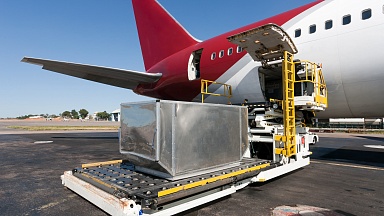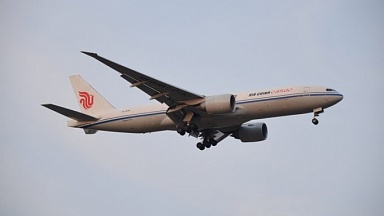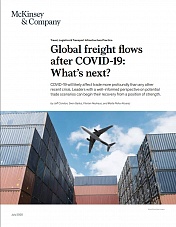However, the growth in express cargo operators since 2005 has seen a rise in freighter flights in the late evening and early morning slots.
That is the conclusion of the latest data snapshot by Eurocontrol, the Brussels-based organisation for the safety of air navigation for air traffic management across Europe.
Its research, covering airspace from Finland to Turkey, found that flights by all-cargo aircraft complement passenger flights in a couple of ways. First, they carry around half of air cargo, while the rest travels in the holds of passenger aircraft.
What is less well known, said Eurocontrol, is that cargo flights have two busy periods, just before the passenger day starts in earnest, and just as the passenger flights are finishing for the day.
Eurocontrol said: «So their demands on the network, which are light as cargo amounts to fewer than 3% of departures (2019 statistics), complement the demands from passenger flights.»
It found that 6% of cargo departures are between 0300 and 0359, as an average for the whole of 2019. Cargo departures have a peak in the 0400-0459 slot, decline to a low point in the middle of the day, then climb to a stronger peak in late evening.
Eurocontrol stated: «This is the converse to passenger flights (and even more so to business-aviation flights) which really start in earnest from 0600 and are relatively high all day, before declining from 2000.»
The research found that freighter flights’ 0400 peak is so strong that, in 2019, even if cargo amounted to only 3% of departures overall, it had the largest share of all flights in that slot with 20,300 flight departures (56 per day) between 0400 and 0500, versus 11,000 (30 per day) scheduled passenger departures.
Eurocontrol explained: "Even though 2021 was disrupted by COVID-19, the variation during the day was not that different; some of the peaks were just a little lower. There has been more change over the longer term.
«Since 2005, with the rise of overnight delivery, both the morning and evening peaks have grown sharper, up 2.2 percentage points in the morning, from 6.2% in 2005 to 8.4% in 2019, and 1.5 points in the evening, from 8.6% to 10.1% in 2019.
«Both the middle of the day and the middle of the night had a smaller share of all-cargo flights in 2019 than in 2005.»





